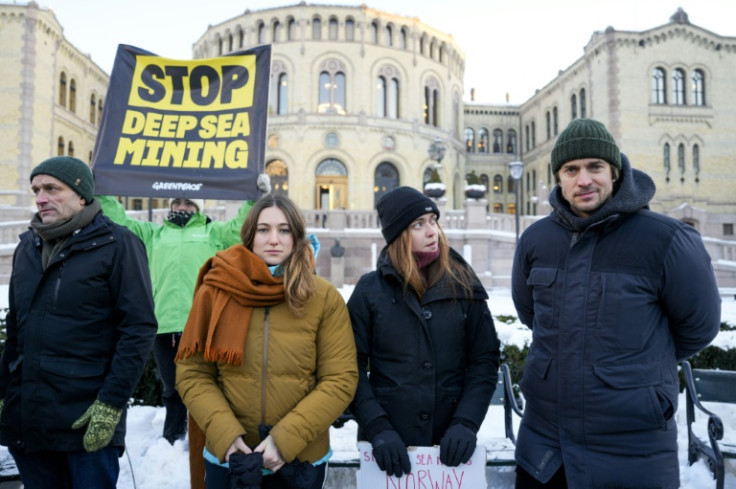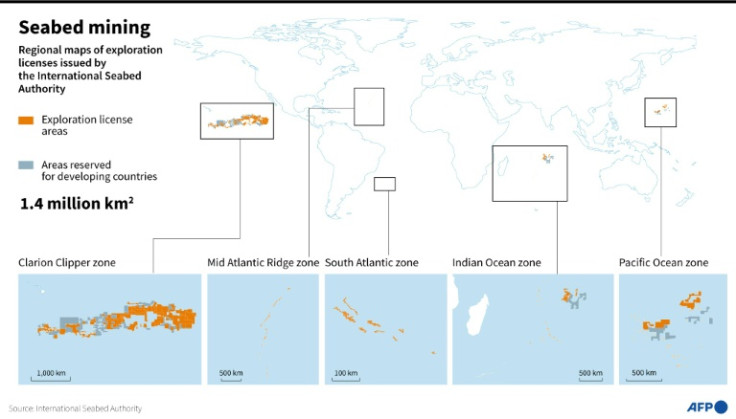Norway Continues To Open Arctic Ocean Seabed For Mining Despite Environmental Warnings
Norway has been slammed for ignoring environmental groups and opening the Arctic Ocean seabed for mineral exploration.

Norway has been slammed for ignoring environmental groups and opening the Arctic Ocean seabed for mineral exploration.
Last week, Norway's centre-left government passed a bill that would open parts of the Norwegian Sea for additional seabed mining exploration.
The new legislation comes as the international demand for battery metals increases. The batteries will be put towards operating electric vehicles across the globe.
Norway is not alone on the growing list of nations that have considered or have taken part in seabed exploration. The list includes Japan, Namibia, the Cook Islands in the South Pacific and New Zealand.
Last year, in December, Norway's parliament was criticised after it saw the initial mining plans pass with an overall majority vote. The lawmakers were slammed for ignoring scientists' warnings that the act would risk the biodiversity of the already vulnerable ecosystems.
The experts recognised how there is not enough knowledge on the bottom of the sea to authorise the mining plans.
Frode Pleym, the Head of Greenpeace Norway, immediately called the decision "a disaster for the sea", noting that the mining would destroy Norway's "last wilderness".
"We do not know what consequences this will have for the ecosystems in the sea, for endangered species such as whales and seabirds, or for the fish stocks on which we base our livelihood," Pleym added.
The Chief Executive of Wildlife Campaign Group WWF Norway, Karoline Andaur, also dubbed the lawmakers' decision as "the biggest disgrace in Norway's management of the oceans in modern times, and the final nail in the coffin for Norway's reputation as a responsible maritime nation".
Norway's Ministry of Energy responded to the concerns by claiming that it would only support the ocean mining plans if they were done in a "reliable and responsible manner".
The Ministry also declared that deep-sea digging would be prohibited in sensitive ocean regions that are close to active underwater volcanic vents.

The digging will seek out seabed deposits between Norway and Greenland, with most of the mining taking place within Norway's national jurisdiction and above the Arctic Circle.
Although the government were condemned for ignoring environmental specialists, at first, the work on Norway's seabed will consist of collecting information on what harm the large-scale mining will bring to aquatic life.
Along with the environmental experts, large oil companies have also been expressing concerns regarding the harm that deep-sea digging could cause to sea life.
In a statement published last year, shortly after Norway's parliament passed the initial ocean-mining plans, oil giant Equinor said that it "recognises the potential for environmental risk associated with exploration and extraction of minerals on the seabed".
The first stages of the deep-sea digging also set out to find out the number of metals that the seabed holds.
Norway's government also noted that parliament would need to consider the plan again before it passed on industrial-scale seabed mining activities.
It would not be a shock to see Norway take part in industrial-scale sea exploration, considering the nation's economy has generated much of its wealth from the ocean.
The Scandinavian nation has financially benefitted from the oil industry, which has produced large profits since the 1960s, large-scale offshore oil drilling – supporting it to become one of the richest countries on the globe.
While the ocean has acted as a successful financial source for years, the climate crisis has pushed the Norwegian government to seek new sustainable ways to grow the economy.
The authorities responded to the environmental criticisms, claiming that they have recognised the global concerns about global warming and pledged to shift away from fossil fuels and oil.
However, some environmental experts have continued to criticise the nation for endangering the planet in the meantime.
According to Kaja Loenne Fjaertoft, a Marine Biologist from Norway who works with the World Wildlife Foundation, the Norwegian authorities are "risking ocean health" and "gambling our future".
© Copyright IBTimes 2025. All rights reserved.






















